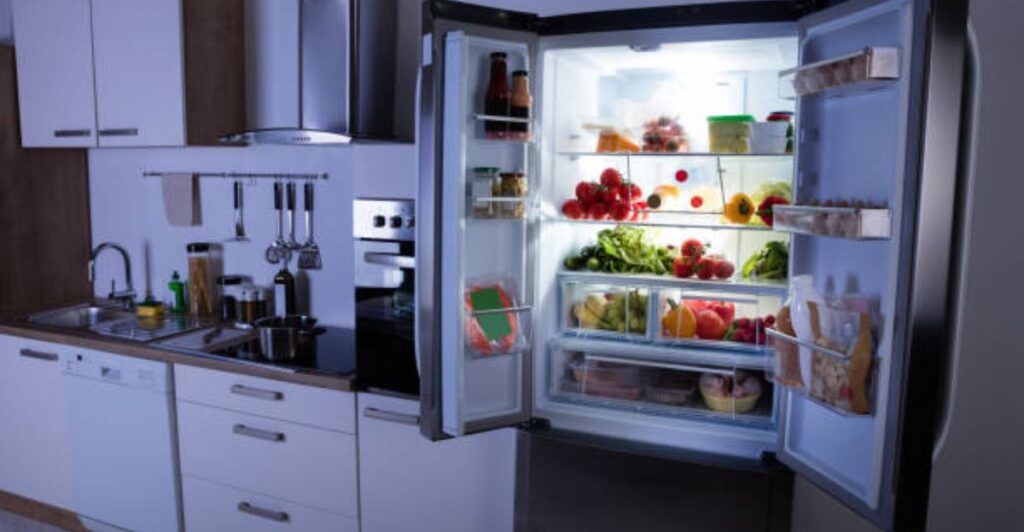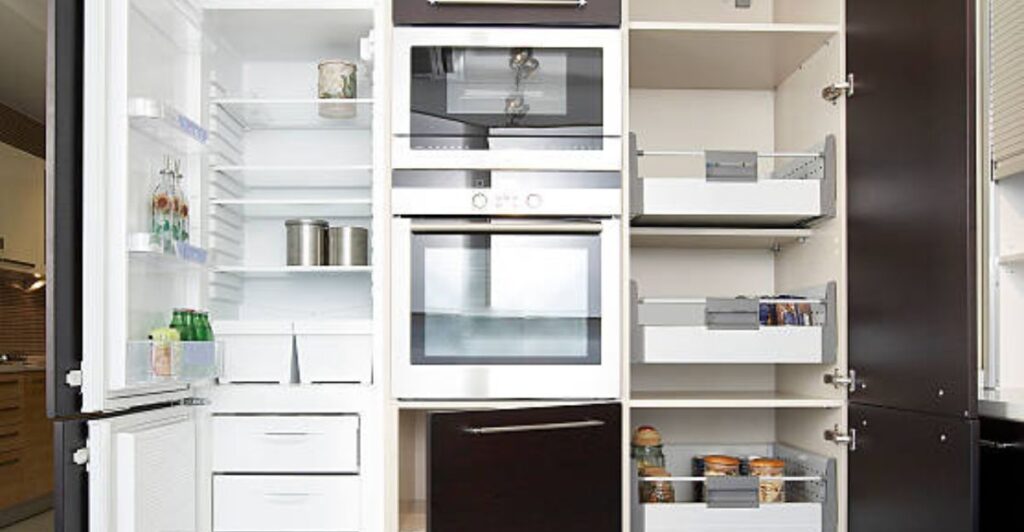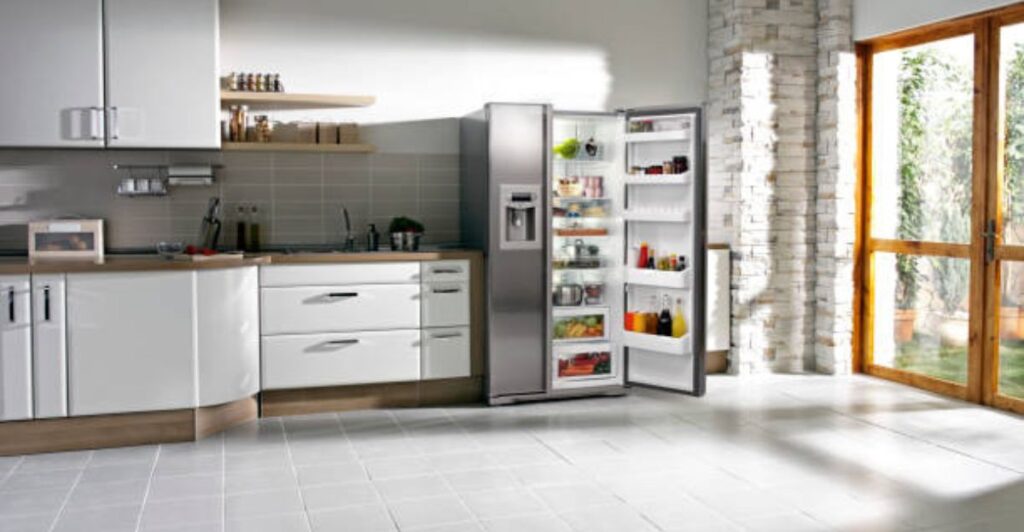A clean refrigerator is more than just a pleasing sight—it’s essential for food safety, energy efficiency, and kitchen hygiene. Over time, crumbs, spills, and forgotten leftovers can build up, causing odors and bacteria. But with the right approach, cleaning your fridge doesn’t have to be a chore.
In this article, we’ll walk you through **12 step-by-step methods** to clean every inch of your refrigerator effectively and efficiently.
Introduction: Why It’s Important to Keep Your Fridge Clean
12 Step-by-Step Methods to Clean Every Corner of Your Fridge
Your refrigerator is home to almost everything your family eats. A dirty fridge can harbor harmful bacteria like Salmonella and Listeria, create foul odors, and reduce appliance efficiency. Regular cleaning helps extend your fridge’s lifespan, keeps your food fresh longer, and ensures a healthier kitchen environment.
12 Step-by-Step Methods to Clean Every Corner of Your Fridge

1. Unplug the Fridge
Safety first! Unplug your refrigerator to avoid electric shock and allow the appliance to warm up slightly, which makes cleaning easier.
2. Remove All Food Items
Take out everything from the fridge. Store perishables in a cooler with ice packs while you work. Discard expired or spoiled items.
3. Take Out Shelves, Bins, and Drawers
Remove all detachable parts—shelves, crisper drawers, door bins—and set them aside for washing separately.
4. Soak and Wash Removable Parts
Soak the parts in warm, soapy water for 10–15 minutes. Scrub gently with a sponge or soft brush, then rinse and let them air-dry.
5. Clean Interior Walls and Surfaces
Use a homemade cleaner made of 2 tablespoons of baking soda in 1 liter of warm water. Wipe down the interior walls, top to bottom, using a microfiber cloth or sponge.
6. Scrub Tough Stains with a Toothbrush
Use an old toothbrush to clean sticky residue or stains in corners, along tracks, or around shelf supports.
7. Wipe Door Seals and Gaskets
Door seals can trap crumbs and mold. Clean them using a solution of equal parts vinegar and water, making sure to get into the folds.
8. Dry All Surfaces Thoroughly
Use a clean, dry towel to wipe down every cleaned area. Moisture can lead to mold or mildew if left behind.
9. Deodorize Naturally
Place an open box of baking soda or activated charcoal in the fridge to absorb lingering odors.
10. Clean the Exterior and Handles
Use a mild cleaner or a vinegar-water solution to wipe down the exterior, especially handles, where germs accumulate frequently. For stainless steel, use a specialty cleaner to avoid streaks.
11. Vacuum or Brush the Condenser Coils
At least twice a year, unplug the fridge and gently vacuum or brush the coils behind or beneath the unit. This improves cooling efficiency and extends the appliance’s life.
12. Reassemble and Restock Mindfully
After drying, put shelves and drawers back in place. Organize food by category, wipe containers before returning them, and use clear bins to maintain cleanliness.
Trending Fridge Cleaning Habits in 2025
As we move further into 2025, fridge cleaning habits are evolving with a focus on efficiency,sustainability, and smart organization. Here are the top trends that are reshaping how people keep their refrigerators spotless and fresh:

1. Eco-Friendly Cleaning Products
Consumers are ditching harsh chemical cleaners for natural alternatives like vinegar, lemon juice, and baking soda. These not only clean effectively but are also safe for food-contact surfaces and better for the environment.
2. Reusable Fridge Liners and Mats
Fridge mats made from silicone or waterproof materials are trending. They help contain spills, prevent staining, and can be easily removed and washed—making maintenance quick and mess-free.
3. Smart Fridge Notifications
Modern smart refrigerators now offer cleaning reminders, temperature alerts, and food expiration warnings, helping users stay ahead of messes and spoiled food.
4. Labeling and Inventory Systems
More homeowners are implementing labeling systems for leftovers and ingredients. Apps or dry-erase boards inside the fridge help track what’s inside, reducing waste and improving cleanliness.
5. Minimalist Fridge Organization
Inspired by the minimalist movement, people are keeping less in their fridges and arranging it neatly using ransparent bins, stackable containers, and category-based sections to make cleaning easier.
6. Scheduled Cleaning Routines
With the popularity of cleaning influencers and productivity apps, people are **setting monthly or bi-weekly cleaning reminders**. Some even follow TikTok or YouTube cleaning challenges focused on fridge care.
7. Odor-Control Innovations
From natural deodorizers like activated charcoal and coffee grounds to **smart odor sensors built into newer fridges, odor control is now a high priority in fridge hygiene.
8. Multi-Purpose Cleaning Tools
Compact, multi-function cleaning gadgets—like electric scrub brushes corner crevice tools, and microfiber gloves—are making it easier to reach tight areas in the fridge.
Suggestions for Better Results
Want a fridge that stays fresh and spotless longer? Here are some expert-approved suggestions to make your cleaning routine more effective and hassle-free:

1. Create a Cleaning Schedule
Mark a day each month on your calendar or set a phone reminder to deep-clean your fridge regularly. A consistent routine prevents buildup and makes each session easier.
2. Use Fridge Liners
Line your shelves and drawers with washable mats or paper towels. They catch spills and crumbs, making cleanup quicker and less messy.
3. Label and Date Food Items
Use masking tape or erasable labels to mark the date on leftovers and opened items. This helps prevent forgotten food from turning into a mess.
4. Keep an Odor Absorber Inside
Store an open box of baking soda, activated charcoal, or a small bowl of coffee grounds in your fridge to continuously absorb unpleasant smells.
5. Declutter Weekly
Before your weekly grocery run, do a quick fridge check. Toss expired items, wipe small spills, and rearrange items to avoid overstocking.
6. Group Similar Items Together
Use clear bins or baskets to organize food by category—like dairy, condiments, or snacks. This not only makes things easier to find but also prevents spills from spreading.
7. Wipe Containers Before Returning Them
Before placing jars, bottles, or leftover containers back in the fridge, give them a quick wipe. This reduces stickiness and keeps shelves cleaner.
8. Don’t Overload the Fridge
Air needs to circulate for proper cooling and freshness. Avoid stuffing your fridge too full—it puts pressure on the motor and encourages uneven cooling.
9. Use a Lazy Susan for Hard-to-Reach Areas
Install a rotating tray on a fridge shelf for sauces or small jars. It keeps items visible and prevents accidental spills when reaching in the back.
10. Clean Spills Immediately
Don’t wait for messes to harden. A quick wipe with a damp cloth when something spills saves time and effort later.
Conclusion
Cleaning your refrigerator may seem like a big job, but by following these 12 step-by-step methods, it becomes manageable—and even satisfying. A clean fridge improves food safety, reduces energy costs, and creates a fresher kitchen environment. Make it a regular part of your home care routine and enjoy the benefits of a spotless, odor-free refrigerator.
References
[FDA – Refrigerator & Freezer Storage Chart](https://www.fda.gov/food/food-safety-charts/refrigerator-freezer-storage-chart)
[CDC – Food Safety and Your Fridge](https://www.cdc.gov/foodsafety/keep-food-safe.html)
[EPA – Appliance Energy Tips](https://www.epa.gov/energy)
FAQs
Q1: How often should I clean my refrigerator?
A: A deep cleaning is recommended once a month. Spot clean spills and expired food weekly.
Q2: Can I use bleach in my fridge?
A: It’s best to avoid bleach. Baking soda and vinegar are safer, food-friendly options.
Q3: How do I get rid of bad odors?
A: Use baking soda, activated charcoal, or coffee grounds to neutralize smells naturally.
Q4: Do I need to unplug the fridge to clean it?
A: Yes, especially if you’re cleaning coils or soaking parts. It’s safer and allows for easier handling.
Q5: What’s the ideal temperature for a fridge?
A: Set your fridge between 37–40°F (3–4°C) and freezer at 0°F (-18°C) for optimal food preservation.

